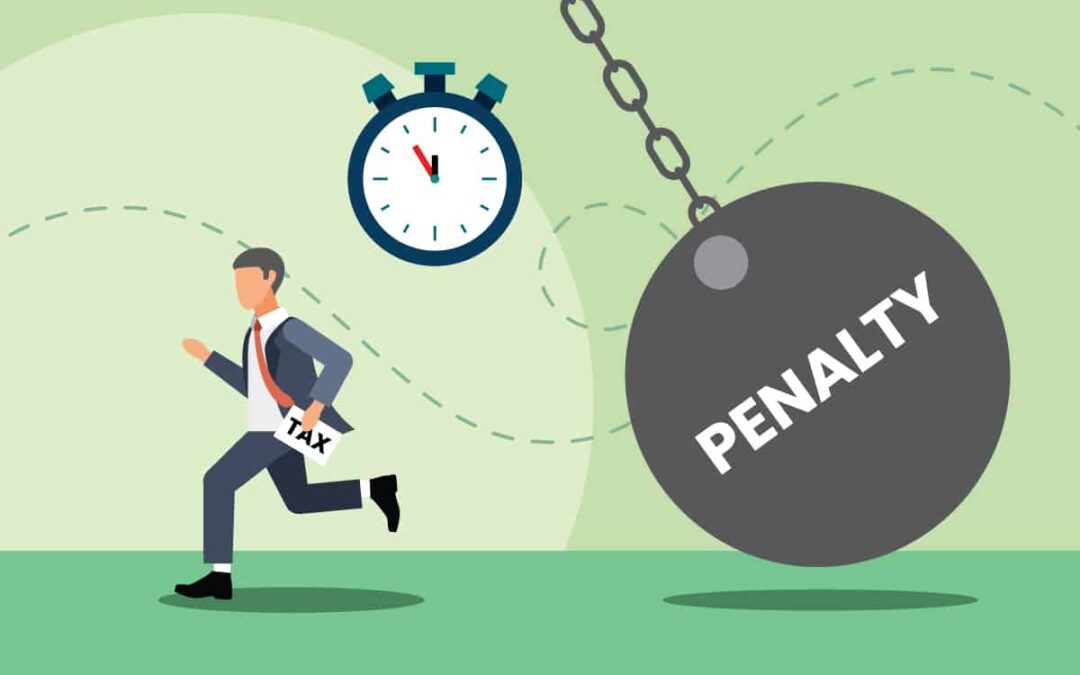What Happens If You aren’t able to Pay Your Taxes?
Even if they owe nothing, every American who earned money in a given year must file a tax return.; they may be due a refund for taxes already paid throughout the year or may be required to pay additional taxes.
If you do not file your taxes or do not pay the taxes you owe, you may face several serious consequences. The IRS may assess monthly late payment penalties and interest on the amount owed. The maximum amount could be up to 47.5% of what you owe, including 22.5% for late filing and 25% for late payment.
You might be subject to property liens or wage garnishments as time passes. The harshest tax evasion penalties include up to five years in prison and fines of $100,000.
If you are assessed a failure-to-pay penalty, you will receive a letter informing you of a balance owed. You could receive more than one letter.
A tax lien is considered a legal claim against property and financial assets you own or may own in the future. It is not a seizure of your assets but a claim against them. The government may be entitled to a portion or all of the proceeds if you sell the asset.
What happens if you don’t file your taxes on time?
If you cannot file your tax return by the deadline, you must submit Form 4868 by the due date to request an extension of time (typically April 15th).
Whether or not you file your taxes, the IRS will send you a notice of what you owe. Failure to pay the amount due by the due date will result in daily and monthly penalties.
Additionally, there is interest due on any unpaid taxes, which begins accruing on the first day they are past due and increases daily until the balance is paid in full.
The current federal short-term interest rate plus 3% will determine the interest rate. Because the short-term rate fluctuates every three months, your interest rate may increase or decrease according to how long it takes you to pay your taxes in full.
In case you file your return longer than 60 days after the final date (or extended period), the failure-to-file penalty is $435 or 100% of your total tax liability, whichever is less. As you can see, filing late, with or without an extension, does not pay off. To avoid additional failure-to-file penalties and interest, you should still file your tax return even if you do not have enough funds to pay your unpaid tax liability by the deadline.
What if you haven’t paid your taxes in a long time?
If you haven’t paid your taxes in many years, the IRS may seek to recover those funds from you in various ways. This could include garnishing your wages, putting a lien on your home or other valuable property, or going directly after your bank account. The IRS may withhold future tax returns until your tax bill is paid in full.
You may also face additional penalties. The government may refuse to issue you a passport if you owe more than $55,000 in taxes. The IRS may also refer your outstanding tax payment to a private collections agency, which will certainly be much more aggressive in attempting to recover the funds.
What Should You Do if You Can’t Pay Your Taxes?
If you cannot pay your taxes, the first thing you should do is contact the IRS. They want to collect from you rather than punish you. A payment schedule known as an installment agreement can be established. This lets you settle your tax debt through regular payments without having to worry about levies, liens, or jail time.
If you can’t pay your taxes, you can reduce the penalty and interest amounts by paying as much as you can according to the IRS. The IRS also suggests that you consider paying the full amount with a loan with lower fees and interest rates than the IRS, such as a credit card, bank loan, or home equity loan.
Before agreeing to an installment agreement, the IRS may require you to pay a portion of your tax liability. Furthermore, you will still owe penalties and interest, but the penalty rate is slightly lower for those on a payment plan than those who aren’t.


Recent Comments